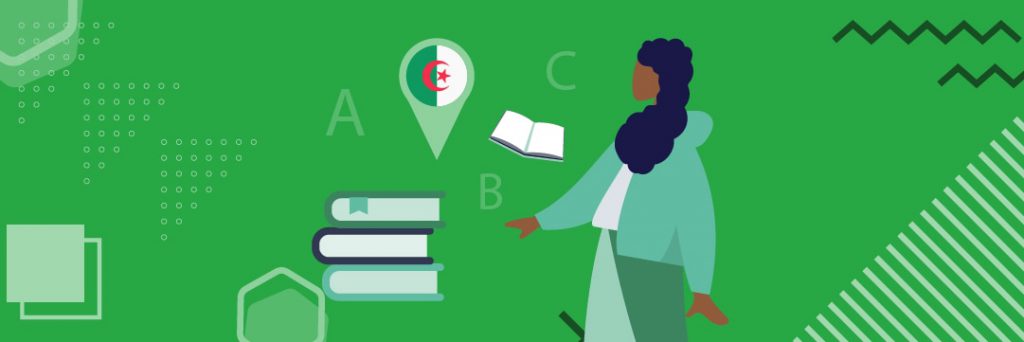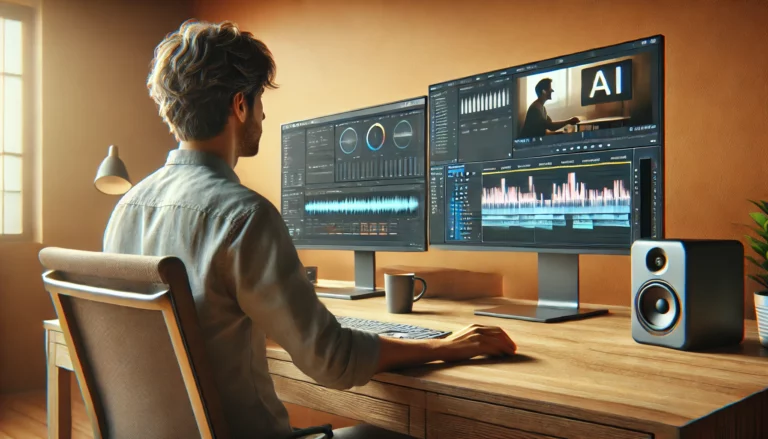The Algeria language has a rich history and culture, all of which have led to the development of the language itself. When it comes to translation and knowing the language, a little history doesn’t hurt.
“When I think of the other’s misfortunes, I forget mine.” Ki nchouf ham el nass nansa hami. – Algerian Proverb
A Brief History of Algeria
From the Roman Empire to the current day, Algeria has been a country alive with culture, heritage, and customs. In the early days, Algeria was considered to be the breadbasket of the Roman Empire.
The territory now comprising Algeria was ruled by various Arab-Amazigh dynasties from the 8th through the 16th century, when it became part of the Ottoman Empire. The decline of the Ottomans was followed by a brief period of independence that ended when France launched a war of conquest in 1830. – Britannica.com
By the mid-1800’s, the French suppressed and ruled Algeria as a colony. France invaded the region in 1830. This rule lasted until the Algerian War of Independence, which ended in 1962. However, this time period of French rule had a large impact on the history and culture of Algeria, including the Algeria language.
Algeria’s two largest cities, Algiers and Oran both showcase the Algerian culture. Algiers is a metropolis on the coast with a high standard of living and a busy atmosphere. Oran, also on the coast, is a port city that thrives on music, art, and education in a bit of a more quiet style than Algiers.
The Geography of Algeria
Algeria is a coastal country on the Mediterranean Sea. It is on the northern border of Africa, tucked between Morocco, Libya, Tunisia, and Niger, Mali, and Mauritania. It is the largest country in Africa, which has a big impact on the Algeria language. The arid Sahara Desert makes up most of the country, while the northern part is beautiful, fertile coastal land. The Mediterranean Sea lends its beauty and breezy climate. The other region of Algiers is the semi-arid area of the High Plains. These diverse areas add to the diversity of the country.
The Algeria Language
Now comes the Algeria language. With the rich history and the beautiful, diverse land, language takes bits and pieces from it all. Autolingual shares that it’s not an easy answer about what language is the primary one in Algeria.
Algeria is a North African country with more than 42 million inhabitants who speak several different languages.
Officially, Algerians speak Arabic and Berber, but in reality, the real linguistic landscape of Algeria is a little more complicated.
Algeria does have one official and main language, and that is Modern Standard Arabic (MSA). And while, yes, according to Autolingual, it is the language for newspapers, media, public announcements, education, and official statements, it’s not what people really speak. It’s a quite formal language, close to Classical Arabic. Most people in Algeria do understand it but don’t speak it.
The languages of Algeria
So that brings us to the big question. What language do Algerians speak? It makes sense that with the history of French rule, that French is a common language in Algeria. Berber is quite common, too, and so is Derja (Darja), which is a form of Arabic distinct to Algeria. Sometimes Derja is referred to as Algerian Arabic.
Algerian Arabic (Derja)
Let’s look at each of these Algeria languages a little closer. Derja is a form of Arabic unique to Algeria. It’s derived from a variety of the Arabic languages spoken throughout northern Algeria. Algeria has over 27 million speakers of Derja. You may also see/hear it as Dziria. French and Berber both had a large influence on Algerian Arabic.
Berber (Amazigh)
The language of Berber is common throughout North Africa, especially in Morocco, Algeria’s neighbor. Berber languages are also called Amazigh languages. The Amazigh language is a national language in Algeria. It was granted this status in 2002. One form of it is Tamazight that many native Algerians speak. Al-Fanarmedia gives us a brief history of this language in Algeria.
Algerian leaders switched their official language from French to Arabic after the country’s war of independence in the early 1960s.
Forty years later, the government labeled Tamazight—the mother tongue of the Berbers— as a “national” language. The move fell short of putting Tamazight on par with Arabic but nonetheless recognized that 25 percent of Algerians speak the language.
The government is studying how to standardize the language and its script. But Tamazight advocates do not believe those efforts will work. Tamazight is a catchall term for many dialects that span the African continent. It cannot be limited to a single version per se, they said.
You can see, there are many issues concerning this language around its use and acceptance in Algeria.
French
As mentioned, French is a common language due to the past French colonization in Algeria. As with most histories of colonization, this was a dark time in Algeria. However, the language survived in Algeria, and a number of people still speak it. It is no longer an official language in Algeria, but around 20% of the population still writes and reads it.

Translation Regarding the Algeria Language
Clearly, there are a number of languages in Algeria, so if you are considering translation with Algeria people as the audience, it’s important to know what specific language to work in. This is where a good translator comes into play. A skilled translator will be aware of languages, dialects, and nuances in the many Algerian languages. Though they may not know them all, they should know which should appeal to your target audience.
It’s also important that you do a bit of research to make sure you are choosing the right language for translation. Think about your audience and what Algeria language would be the best one for translation. With the number of languages, it’s important to translate in the right language!
Benefits of Translation
Whether you’d like to translate from one Algeria language to another or from an uncommon language in Algeria to a more common one, the translation will widen your audience.
Here’s a bit of awesome insight to why you should translate:
Research shows that 72% of people prefer to buy a product with information in their own language. More than half are willing to pay a higher price if you’re willing to speak to them in their own language.
A good translation can expand your market, help consumers find your brand, and avoid cultural and translation mistakes. With so many small nuances and subtle differences, it’s crucial to use a translator adept in both languages.
Benefits of Using a Translator
Here we mean a translator person, a professional. Sure, you hear about translator apps and programs all the time, but we recommend avoiding them. This article from our Bunny library shares some of the challenges of the Arabic language.
Arabic can be a tough language to master. It uses a system far differing from the English language. Do you have a need to translate to Arabic? Finding accurate and trustworthy translators can be tough especially when you don’t know the tongue.
If you attempt to plug your translation into an automatic translator, you may not get what you want. Sure, it’s fast and easy, and free, but your result could span from awkward to nonsensical to offensive. Besides the differences in alphabet, structure, and verbiage, there are idiomatic phrases, slang, and specific dialect that an automatic translator won’t recognize. And it’s not just Arabic. It’s any language being translated from one to another. So let’s stick with a human to help you get your work translated into an Algeria language.
Finding a Translator
Searching for a good translator can be a bit overwhelming. Sure, if you know someone who fluently speaks both languages, you’re in luck! However, for most of us, that’s not the case. So where should you look? Some people have great luck using communities in their local area. Whether it’s from a school or an individual, translators are often found locally.
However, when you don’t have those connections, you may want to reach out to a professional translator. And while they may be found locally as well, people often turn to services like ours at Bunny Studio for translation. The key to finding a good translator is finding someone who not only knows both languages in and out, but who also can translate well, keeping your tone, integrity of the message, and appeal.
Here are a few things we recommend looking for along with fluency in both languages:
- Shows knowledge of slang and nuances and how to appeal to the target audience
- Has an acceptable turnaround time
- Falls in line with your budget
- Keeps the integrity and voice of the original piece
- Understands cultural references
- Has good client reviews and feedback
The search for a good translator can be exhausting. But it will be worth it. Opening up an audience can bring in not only more business for you, but also a new cultural perspective. It also brings the global community many of us are striving for these days, with inclusivity and accessibility.
The Big Takeaway on the Algeria Language
Algeria is a county with a rich history full of trials and tribulations. Its language today represents that. To embrace the Algerian culture, it’s important to have your work in the Algeria language, perhaps one of them or maybe all. The key is to have a good translation whatever the language. One that keeps your voice while appealing to the people of the langue you are translating into.
At Bunny Studio, we pride ourselves on our talented translators. They can take your work, whether it’s corporate, marketing, books, video games, screenplays, anything at all, and make it accessible to more people and communities around the world, including Algeria. Check us out, give us a chat, and let’s get started.









